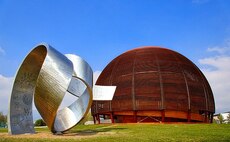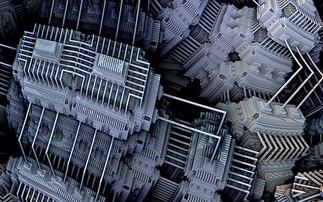Data from twin 3.5 TeV particle stream collision recorded for future study
The LHC will now run for about a year before being shut down for repairs and upgrades The Large Hadron Collider (LHC) has pulled off record-breaking high-energy particle collisions after scientis...
To continue reading this article...
Join Computing
- Unlimited access to real-time news, analysis and opinion from the technology industry
- Receive important and breaking news in our daily newsletter
- Be the first to hear about our events and awards programmes
- Join live member only interviews with IT leaders at the ‘IT Lounge’; your chance to ask your burning tech questions and have them answered
- Access to the Computing Delta hub providing market intelligence and research
- Receive our members-only newsletter with exclusive opinion pieces from senior IT Leaders



















